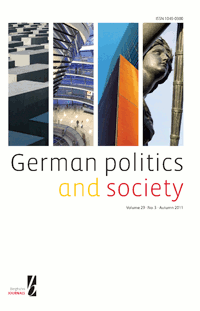June 6th marked the 70th anniversary of The Normandy landings, the day when Western Allies landed in northern France, opening the long-awaited “Second Front” against Nazi Germany. The largest seaborne invasion in history, the operation began the invasion of German-occupied Western Europe, led to the restoration of the French Republic, and contributed to an Allied victory in the war.
On related topic, please take a look at some of Berghahn’s WWII books.
_________________________________________
EXPERIENCE AND MEMORY
The Second World War in Europe
Edited by Jörg Echternkamp and Stefan Martens
Modern military history, inspired by social and cultural historical approaches, increasingly puts the national histories of the Second World War to the test. New questions and methods are focusing on aspects of war and violence that have long been neglected. What shaped people’s experiences and memories? What differences and what similarities existed in Eastern and Western Europe? How did the political framework influence the individual and the collective interpretations of the war? Finally, what are the benefits of Europeanizing the history of the Second World War? Experts from Belgium, Germany, France, Great Britain, Italy, Luxembourg, Poland, and Russia discuss these and other questions in this comprehensive volume.
NAZI PARIS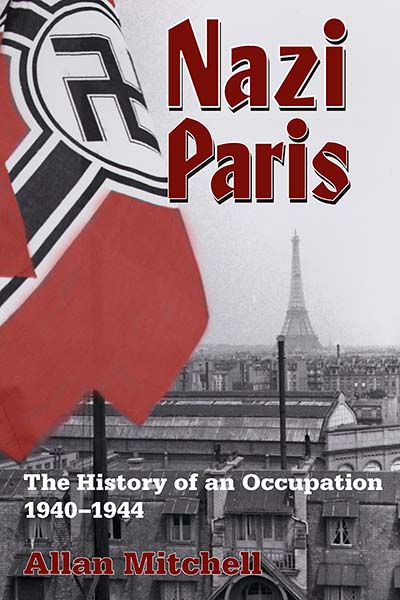
The History of an Occupation, 1940-1944
Allan Mitchell
CHOICE OUTSTANDING ACADEMIC TITLE 2009
Basing his extensive research into hitherto unexploited archival documentation on both sides of the Rhine, Allan Mitchell has uncovered the inner workings of the German military regime from the Wehrmacht’s triumphal entry into Paris in June 1940 to its ignominious withdrawal in August 1944. Although mindful of the French experience and the fundamental issue of collaboration, the author concentrates on the complex problems of occupying a foreign territory after a surprisingly swift conquest. By exploring in detail such topics as the regulation of public comportment, economic policy, forced labor, culture and propaganda, police activity, persecution and deportation of Jews, assassinations, executions, and torture, this study supersedes earlier attempts to investigate the German domination and exploitation of wartime France. In doing so, these findings provide an invaluable complement to the work of scholars who have viewed those dark years exclusively or mainly from the French perspective.
HISTORIES OF THE AFTERMATH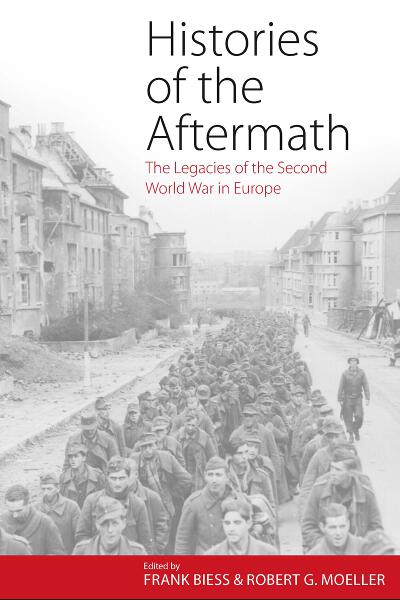
The Legacies of the Second World War in Europe
Edited by Frank Biess and Robert G. Moeller
In 1945, Europeans confronted a legacy of mass destruction and death: millions of families had lost their homes and livelihoods; millions of men in uniform had lost their lives; and millions more had been displaced by the war’s destruction, and the genocidal policies of the Nazi regime. From a range of methodological historical perspectives—military, cultural, and social, to film and gender and sexuality studies—this volume explores how Europeans came to terms with these multiple pasts. With a focus on distinctive national experiences in both Eastern and Western Europe, it illuminates how postwar stabilization coexisted with persistent insecurities, injuries, and trauma.
THE DEVIL’S CAPTAIN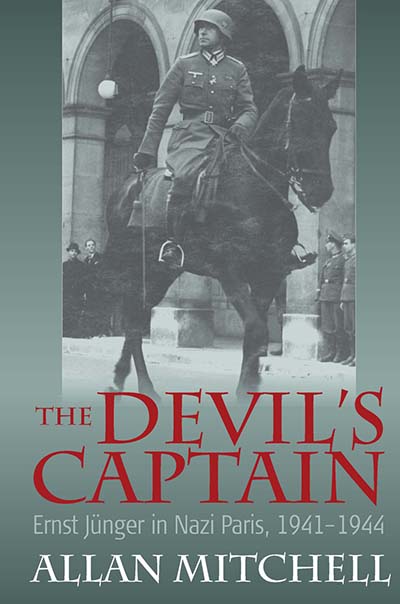
Ernst Jünger in Nazi Paris, 1941-1944
Allan Mitchell
Author of Nazi Paris, a Choice Academic Book of the Year, Allan Mitchell has researched a companion volume concerning the acclaimed and controversial German author Ernst Jünger who, if not the greatest German writer of the twentieth century, certainly was the most controversial. His service as a military officer during the occupation of Paris, where his principal duty was to mingle with French intellectuals such as Jean Cocteau and with visiting German celebrities like Martin Heidegger, was at the center of disputes concerning his career. Spending more than three years in the French capital, he regularly recorded in a journal revealing impressions of Parisian life and also managed to establish various meaningful social contacts, with the intriguing Sophie Ravoux for one. By focusing on this episode, the most important of Jünger’s adult life, the author brings to bear a wide reading of journals and correspondence to reveal Jünger’s professional and personal experience in wartime and thereafter. This new perspective on the war years adds significantly to our understanding of France’s darkest hour.
from Berghahn Journals
______________________
French Politics, Culture & Society
French Politics, Culture & Society explores modern and contemporary France from the perspectives of the social sciences, history, and cultural analysis. It also examines France’s relationship to the larger world, especially Europe, the United States, and the former French Empire. The editors also welcome pieces on recent debates and events, as well as articles that explore the connections between French society and cultural expression of all sorts (such as art, film, literature, and popular culture). Issues devoted to a single theme appear from time to time. With refereed research articles, timely essays, and reviews of books in many disciplines, French Politics, Culture & Society provides a forum for learned opinion and the latest scholarship on France.
German Politics and Society is a joint publication of the BMW Center for German and European Studies (of the Edmund A. Walsh School of Foreign Service, Georgetown University) and all North American universities featuring programs and centers of German and European studies associated with the German Academic Exchange Service (DAAD). These centers are represented by their directors on the journal’s Editorial Committee.
German Politics and Society is a peer-reviewed journal published and distributed by Berghahn Journals. It is the only American publication that explores issues in modern Germany from the combined perspectives of the social sciences, history, and cultural studies.
Journal of Educational Media, Memory, and Society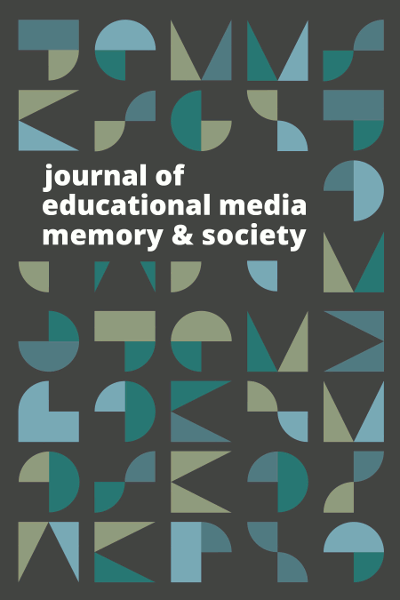
Published on behalf of the Georg Eckert Institute for International Textbook Research
JEMMS explores perceptions of society as constituted and conveyed in processes of learning and educational media. The focus is on various types of texts (such as textbooks, museums, memorials, films) and their institutional, political, social, economic, and cultural contexts. The construction of collective memory and conceptions of space, the production of meaning, image formation, forms of representation, and perceptions of the “self” and the “other”, as well as processes of identity construction (ethnic, national, regional, religious, institutional, gender) are of particular interest.


